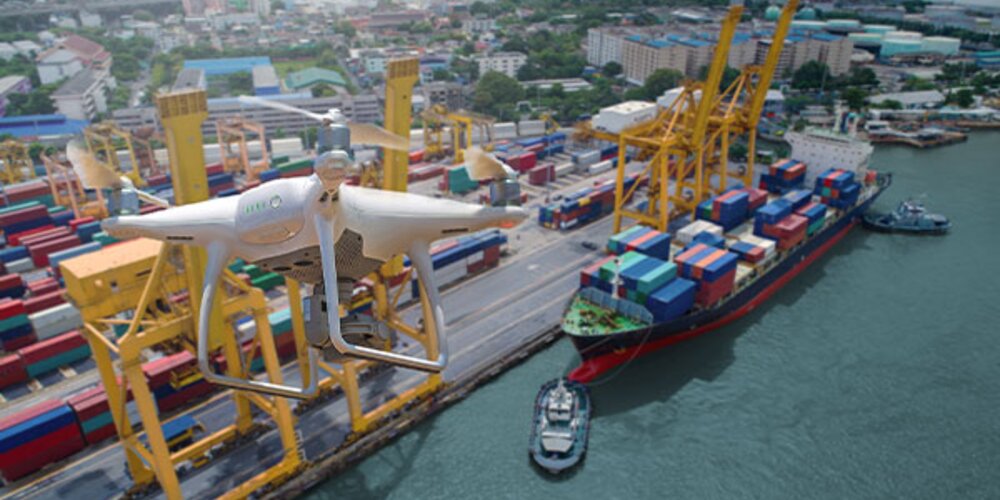Browse our services
Explore how Brookes Bell can help you
Find an expert
Meet our team, find and expert and connect
Contact us
Get in touch, we're here to help

Ships passing through the Baltic Sea will soon find that their sulphur emissions are being monitored by drones thanks to a joint campaign by the European Maritime Safety Agency (EMSA) and the German Federal Maritime and Hydrographic Agency (BSH).
Over a three month period, a specially equipped drone will take off from the German Armed Forces’ Staberhuk base on the east coast of Fehmarn, and will fly over selected ships operating in the Fehmarn Belt and the Kadetrinne/Kadetrenden.
The drones will be measuring the sulphur content in the exhaust plumes of ships transiting the Baltic Sea in order to detect violations of the applicable limits.
Simultaneously, the drones will also be collecting image data for hydrographic surveying purposes. The imagery collected is also expected to be used for three-dimensional mapping of the shorezone.
At present, ships transiting the Baltic Sea Emission Control Area (SECA), must be using fuel with a sulphur content of no more than 0.10%.
Real-time data from the drones will be made available to responsible authorities in all European ports via THETIS-EU, the Port State Control information system operated by EMSA.
Should a drone identify that a ship may be using fuel with more than 0.10% sulphur content, then it can be called for an inspection at its next port of call where fuel samples will be taken.
If it is proven that a violation of the sulphur limit has occurred, heavy penalties can be applied.
As the initiative above points out, it’s vital that your vessels are using fuels that are compliant with the emissions control areas that they pass through.
The Lab’s team of fuel experts can help you ensure that you are using compliant fuel with our range of fuel testing and analysis services.
Tests and analyses we are able to carry out include all of the Table 2 characteristics from ISO 8217:2017, as well as more advanced techniques such as FTIR and GC-MS.
Brookes Bell also has a highly-experienced, team of fuel experts made up of marine engineers, Tanker Master Mariners, fuel chemists and laboratory chemists who can provide consultancy and advice on a range of fuel and fuel cargo-related issues such as:
So, no matter what your fuel requirements, Brookes Bell and The Lab can help.
For more maritime and energy industry news and developments, explore the Brookes Bell News and Knowledge Hub…
Spotlight On: Fuel Services | Will $100 Oil Become the New Normal? | Sampling and Analysis